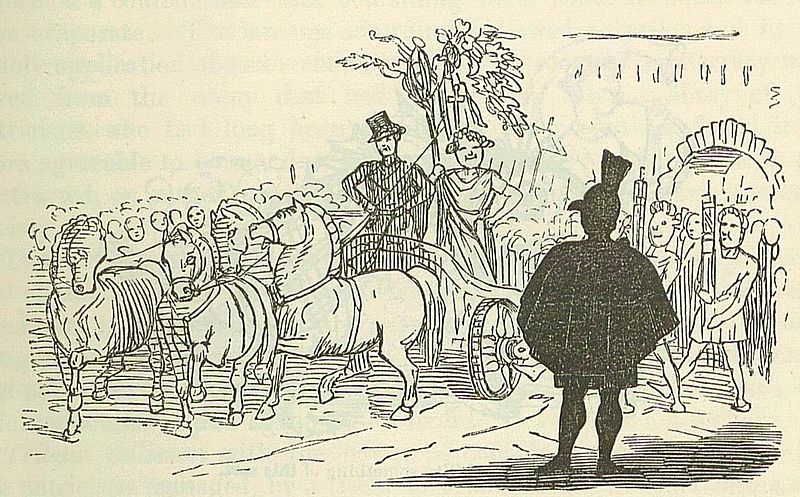
Source: Wikipedia ”Comic History of Rome”
***
One of my big interests in literature is history. Both non-fiction and fiction history is something I always come back to. Recently I’ve read several historical fictions concentrated on the English royalty, everything from Elizabeth to the Tudors. A week ago I caught the sight of E.H. Gombrichs’ A little History of the World. It had great reviews; however some what mixed, but I felt it might be just my type of history book.
I am about half way through, but several things have already left me thinking. Gombrich wrote this as a history book for school, yet to me, it seems far from ”school book material” – but in the 1930′s maybe one couldn’t have too high expectations. In the writing, it is clear that he ”speaks” to a child – and somewhat subjective thoughts of who was ”bad” and who was ”good”.
”The Merovingian kings were not much good at ruling. They had flowing hair and long beards and they did nothing but sit on the throne and parrot the words their advisors had taught them.”
I can’t decide whether I should interpret Gombrich as being comical, or just childish..(?) To be honest, when I picked it up, I expected it to be something like Bill Bryson’s A Short History of Nearly Everything (which I loved).
The other thing, that I actually agree with some of the other critics – is that the book is very centered on Europe. It seems that Gombrich almost sets the Greeks to single-handedly start the age of ”science”, and the Arabs and Indians are left in the shade… the only ”credit” he gives them is for the number system and for having saved Greek knowledge by ”copy/paste”. This assumption in Gombrich’s history telling has left me disheartened for the last 50 pages…











